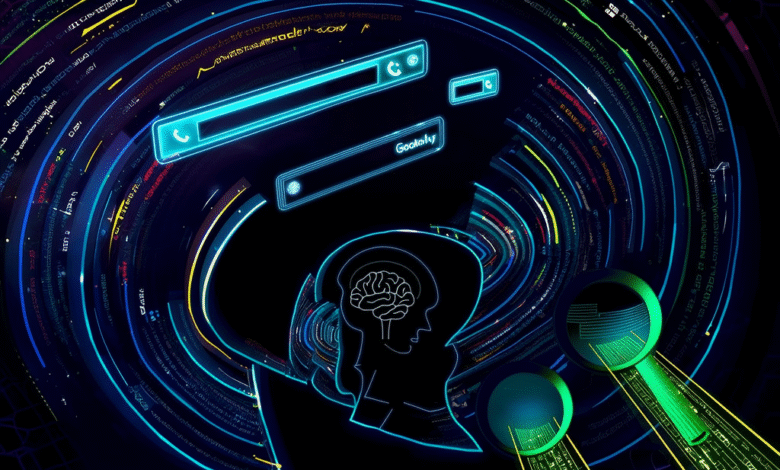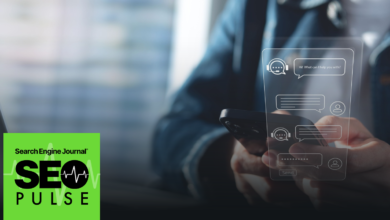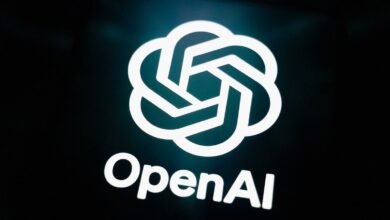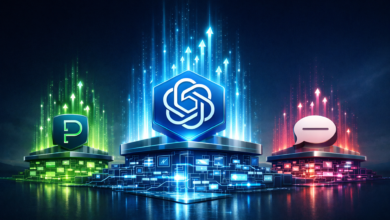The Great Decoupling Reshapes Digital Discovery

▼ Summary
– The Great Decoupling: In 2025, publishers experienced a historic disconnect between high search visibility and plummeting traffic, as AI summaries reduced the need for clicks.
– Google’s Shift to Answer Engine: Google transitioned from linking to external sites to providing direct answers via features like AI Overviews, drastically cutting outbound clicks.
– AI’s Impact on Traffic: By 2024, AI-generated summaries in search results caused organic traffic drops of up to 50% for publishers, with top organic click-through rates falling below 10%.
– Negative Correlation: AI Overview citations led to fewer clicks, as comprehensive summaries eliminated the need for users to visit source websites.
– Publisher Adaptation Strategies: Publishers are responding by optimizing for AI visibility, creating non-summarizable content, or building direct audience relationships to reduce reliance on search traffic.
Imagine a digital paradox: your content’s visibility soars, yet your audience vanishes. This unsettling reality struck Sarah Chen, a content head at a mid-sized publisher, in March 2025. Her analytics showed an impossible scenario: search visibility had doubled in six weeks, yet traffic plummeted 30 percent. Across the web, major publishers reported the same alarming trend. This was the Great Decoupling, a historic severing of the link between being found and being visited.
The Unraveling Web
For two decades, an unwritten economic constitution governed the web: publishers created content, search engines indexed it, and users clicked through. Revenue, primarily from advertising, flowed through this reliable conversion of rankings into visitors. Google, processing trillions of searches, became the primary artery for human attention.
Google’s transformation from a search engine to an answer engine began subtly. Knowledge Graph and featured snippets offered direct answers, slowly reducing the need to click. Publishers initially overlooked these changes, unaware they were training their replacement. Mobile usage and voice assistants accelerated the shift toward self-contained answers. By 2019, over half of Google searches ended without an outbound click. The web was slowly enclosing.
The AI Catalyst
Then, in November 2022, OpenAI’s ChatGPT emerged, providing comprehensive AI answers without hyperlinks. Google declared a “code red,” facing potential obsolescence.
Google’s counter-offensive began swiftly. By May 2023, Google unveiled Search Generative Experience (SGE), embedding AI-generated summaries directly into search results. These multi-paragraph answers, appearing above traditional links, offered comprehensive information, making clicks less necessary. When these AI Overviews rolled out widely in May 2024, many informational publishers saw organic traffic drop by up to half. By March 2025, with Gemini 2.0 and “AI Mode,” AI Overviews appeared on 16 percent of all U.S. searches, and the click-through rate for the top organic position plummeted to less than 10 percent. Impressions skyrocketed as Google cited more content, but clicks evaporated.
A New Reality
A disturbing revelation followed: data showed a negative correlation between AI Overview citations and clicks. When Google’s AI summarized content comprehensively, users had no reason to visit the source. Being found by Google no longer predicted being visited; in some cases, it predicted the opposite.
This shift was inevitable due to three forces. First, technological capability: AI could now answer questions cheaply and effectively. Second, competitive dynamics: Google had to disrupt itself or risk being disrupted by conversational AI. Third, user behavior: Users had long been primed for instant answers, adapting quickly to the new experience. Zero-click searches reached 65 percent by mid-2025. Google’s search volume hit record highs even as outbound clicks reached record lows.
Adapting to the Shift
Publishers are now adapting in varied ways. Some, the Optimizers, restructure content for AI visibility, hoping for brand exposure. Others, the Builders, create interactive tools or proprietary data that AI cannot summarize. A third group, the Exodus, builds direct relationships through newsletters and communities, reducing search dependency. Google, meanwhile, navigates a delicate balance, needing publisher content for quality answers but no longer needing to reciprocate with traffic. New licensing deals are emerging, favoring large publishers.
The Great Decoupling raises a fundamental question: Can an information ecosystem sustain itself when value creation and value capture are severed? This is not an end, but a beginning. We stand at an inflection point as significant as the dawn of search itself, entering the agentic web. The only question now is what we build in its wake.
(Source: Search Engine Land)





